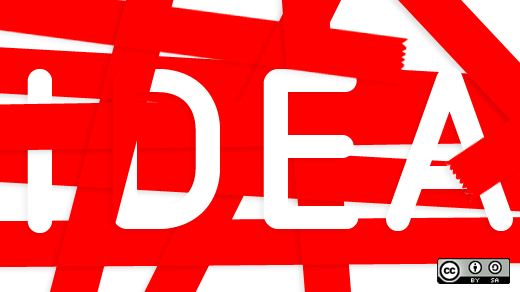It is hard to think of any environment as conducive to innovation as the Internet. With a good idea and the motivation to follow it through, anything is possible. Look at Wikipedia, the Google search engine, and Facebook, to name just a few success stories.
Behind them are thousands of less famous web-based innovations that are also having a huge impact on society. These include many thousands of small firms and individual web developers based in Europe.
Collaboration is vital. Technologies do not emerge out of the blue. They are built on innovations by others – building-block technologies that are offered up as industry standards.
These standards are vital if future innovators are to avoid having to re-invent the digital wheel all the time. Nowhere is this more true than in the information and communication technology (ICT) domain, where innovation happens at breakneck speed.
Government agencies and ministries are heavy users of ICT. Yet in Europe, government bodies cannot reference standards agreed by industry fora and consortia such as the W3C – a consortium that approves standards for the world wide web. They can only reference standards agreed by formal standards bodies.
The European Commission wants to change that. Last June it proposed a 'regulation on European standardisation' in which ICT technical specifications (another term for standards) developed by industry forums and consortia such as W3C, Oasis, and IETF (Internet Engineering Task Force) may be recognised in the EU, and referenced in public-procurement tenders.
The thinking behind this move is that governments can benefit from huge efficiencies if they apply technologies that are spurring on the private sector so dramatically. And in return, they can inspire European ICT firms to compete with the best in the world. The European Parliament agrees with the Commission.
However, national governments – in particular those from the EU's largest countries, including France, Germany and the UK – do not. They want to introduce a layer of bureaucracy so cumbersome that it would deter even the most ardent tech-savvy civil servants from referencing one of these industry standards when they issue a call for tender.
To an outsider, it looks like there is a turf war going on. The Commission wants to be able to recognise ICT standards from the likes of the W3C, with national governments, formal standards bodies and industry – forming what has been dubbed the European Multi-Stakeholder Platform – playing an advisory role only.
National governments disagree. They want to have decision-making powers to approve or block standards from industry forums and consortia. By holding out for voting powers, national governments appear to have missed the point of recognising standards from industry fora and consortia. The idea is not to mandate the use of such standards in public procurements. It is simply to allow public authorities to refer to these standards in their calls for tender. If the Council of Ministers succeeds in securing voting power, as opposed to a simple advisory role for the platform, this will deter civil servants on the front line from using the very technologies that have spurred such extraordinary innovation in the private sector.
Referencing standards helps organisations avoid being locked into one or another technology and ensures fair competition, which in turn increases choice and quality and boosts innovation. It is therefore vital that public authorities can reference the full set of globally available standards and specifications used in the private sector – not just the ones that are formally recognised.
Because the public sector is such a huge user of ICTs it has the ability to drive change in the industry. If European governments demand cutting-edge technologies, then European suppliers will have a big incentive to supply them, and in the long term this would encourage the emergence of world-class European ICT firms.
Originally published on openforumeurope.org and reposted with permission.







Comments are closed.